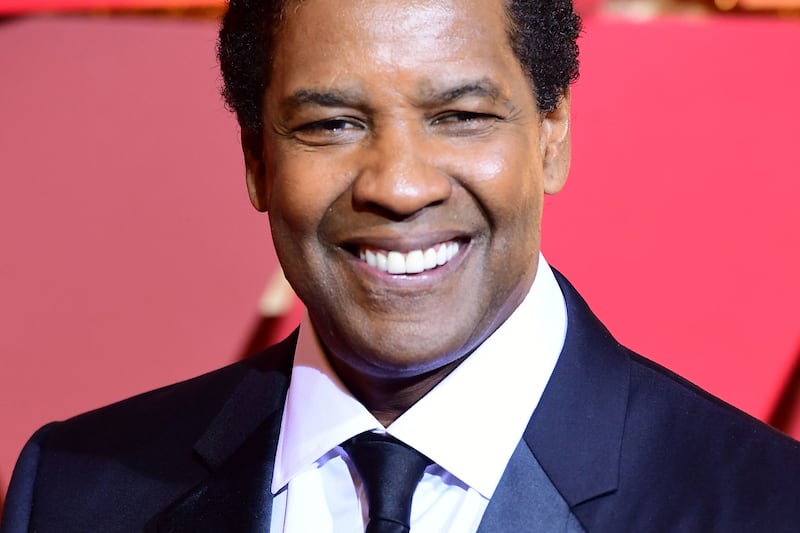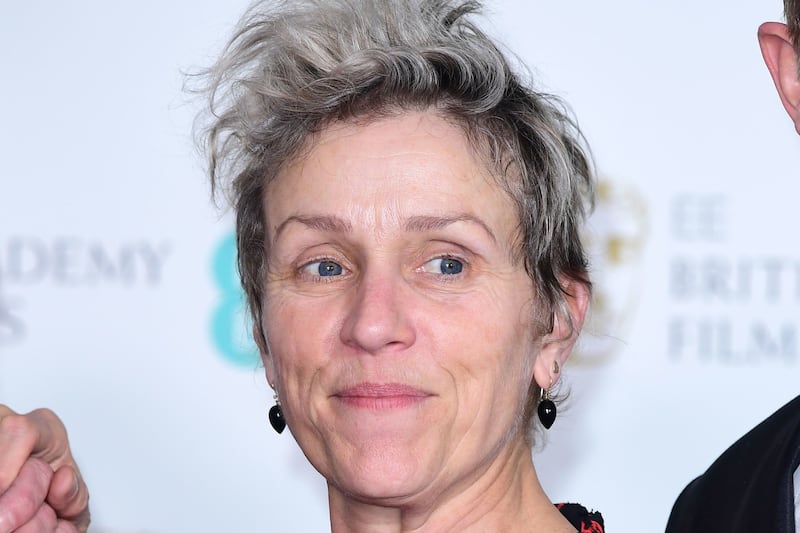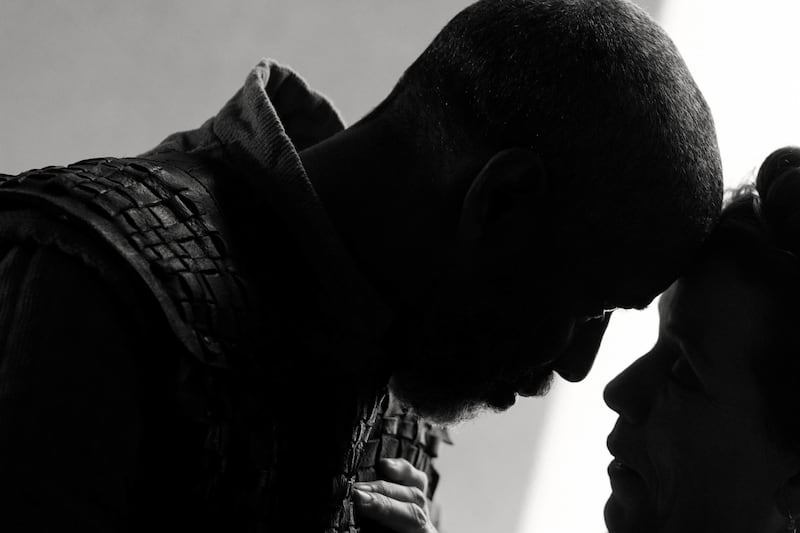FRANCES McDormand's rage sizzles off the screen. Not her own rage, but that of her character in Three Billboards Outside Ebbing, Missouri – which took home four awards at this week's Golden Globes.
In the black comedy written and directed by acclaimed Anglo-Irish playwright and film-maker Martin McDonagh (In Bruges, Seven Psychopaths), McDormand plays grieving mother Mildred Hayes, who is furious that the local police – including no-nonsense Chief Bill Willoughby (Woody Harrelson) and his drunken, racist deputy, Officer Jason Dickson (Sam Rockwell) – have not found her daughter's murderer.
Three Billboards reunites McDonagh and Rockwell following their previous collaboration on 2012's Seven Psychopaths – but while both it and In Bruges were were very male-oriented movies, this time the writer/director/producer was keen to put a woman at the centre of his story.
McDonagh says: "It just popped up, the idea of a mother of a murdered daughter being so outraged by the inactivity of the local police force, about solving the crime, that she would put three outrageous and angry billboards up.
"Once I got the idea of that, she almost wrote herself because you could tell that she was strong and determined but full of grief and pain and rage.
"It was just the idea of letting that be explored to the full in a character who would take no prisoners, who would never stop, almost like Jaws. She would just keep going until she gets this thing solved."
It was a part written with McDormand in mind, and he never considered another actress for the part.
"I think it's her integrity and her attention to detail and her humanity," he muses.
"And this is quite a working-class character and we both share that background so it had to be an actress who wouldn't patronise that or sentimentalise that even and certainly not make it a caricature of this crazy, strong avenging angel type.
"She had to be a real mother and a real woman who has just crossed the line and isn't going to take it anymore.
"I can't think of any other actress in the States who has all those attributes and has the dexterity of comedy too, who isn't going to play it broadly for laughs and who is going to deadpan the humour and keep it truthful.
"She is probably the most truthful actress around and there is no one who even comes second."
While Mildred's anger is at the very centre of the film, McDonagh is adamant it is about much more than that.
"It is an angry film but there are also other things to it and I think that is part of why it's going down well. It's truthful about the anger of its own story and what's going on in the wider world but it's also hopeful about those things too.
"I also think Frances's character is someone we haven't really seen before – not just strong but outrageously strong and provocative.
"There is a joy to seeing the newness of that."
Indeed, Mildred is a foul-mouthed, combative and violent role that leads the Oscar-winning actress to channel a female variant of the classic western hero.
"I really latched onto John Wayne in a big way as my physical idea," she says, "because I really had no female physical icons for Mildred.
"She is more in the tradition of the spaghetti western's mystery man, who comes walking down the centre of the street, guns drawn, and blows everybody away – although I think it's important that the only weapons Mildred ever uses are her wits."
Her grief and her anger as a mother are at the very centre of her performance and something that 60-year-old McDormand, who has an adopted son with Fargo director Joel Coen, acutely related to.
"As a mother, you live on the edge of disaster," she admits. "You just do.
"I didn't give birth to my son, I met him at six months old, but from the minute I held him and smelled him, I knew it was my job to keep him alive.
"And as a parent, you also come to see how the worry and the anxiety that goes along with protecting someone who you give yourself to in that way – that you surrender to – can become degenerative."
In the full force of her grief, Mildred decides to take out three billboards on the road leading into the town, with a pointed message directed at the town's chief of police.
This does not go down well with his second-in-command, the racist, immature mummy's boy Officer Dixon, played by Sam Rockwell.
"He's got a lot of anger, a lot of rage in him," Rockwell explains, "but in working on him, you think about his back story and that all comes from fear.
"I recently played a racist in another movie and I talked to a white supremacist and he said it's not that you hate black people or brown people, it's that you hate yourself – and I think that is really the key, there is a lot of self-hatred with a lot of these people."
"The first thing you do is ask, 'What qualities do I have that this character has?'. That is something I heard Gene Hackman say once.
"You go from there. I'm not a racist, I don't come from that, but you can find moments.
"Everyone is capable of being a coward or a hero at any given moment so you just find that part of yourself."
:: Three Billboards Outside Ebbing, Missouri is released today.








